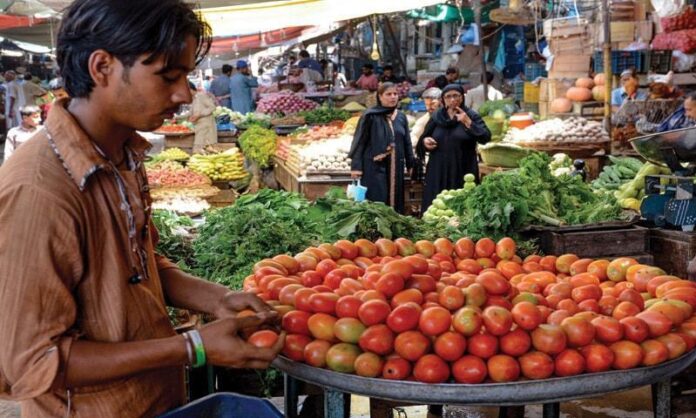ISLAMABAD: The Consumer Price Index (CPI)-based monthly inflation grew by 10.49pc in August 2019, as compared to the same month of last year.
On a month-on-month basis, the CPI national (with base year 2015-16) for the month of August 2019 increased by 1.64pc over July 2019, Member Pakistan Bureau of Statistics (PBS) National Accounts member Dr Bahrawar Jan told the media at a press briefing on Wednesday.
The average inflation rate during first two months of the current fiscal year (Jul-Aug) 2019-20 also grew by 9.44pc as compared to the same period of last year, he informed.
The PBS member said during the month under review, the urban CPI recorded an increase of 1.46pc while rural CPI rose by 1.91pc. The CPI with old base year (2007-08) recorded an increase of 1.38pc, he added.
“In the old system of price monitoring, we used to give equal weightage to all areas including that of rural and urban areas, whereas in the new base year (2015-16), number of new methodologies have been introduced such as introduction of general sales tax, other taxes and fuel price adjustment to compute electricity tariff etc.,” he added.
Dr Bahrawar said that the monitoring of prices has now been made stringent through utilisation of modern technology.
“Androids are now being used for the collection of data from each shop across the country which ensures that the price checking teams have personally visited (the shops) to collect the data,” he added.
Under the new system, the PBS analyse CPI of urban and rural areas separately and then combine both results to determine a CPI National which is considered to be the standard CPI-based inflation rate for the country.
The urban CPI covers 35 cities and 356 consumer items whereas the rural CPI covers 27 rural centres and 244 consumer items. In the new base year 2015-16, National CPI for 12 major groups is also computed by taking weighted average of urban CPI and rural CPI.
According to sector wise inflation, the prices of food and non-alcoholic beverages went up by 12.62pc during August. Out of the total, perishable food items witnessed an increase of 15.10pc while non-perishable food items recorded an increase of 12.16pc.
Similarly, the prices of alcoholic beverages and tobacco rose by 29.7pc, clothing and footwear by 8.9pc, housing, water, electricity, gas and other fuels by 7.07pc, furnishing and household equipment maintenance by 11.55, health 11.93pc, transport 18.5pc, communication 4.3pc, recreation and culture 7.66pc, education 7pc, restaurants and hotels 6.15pc, and miscellaneous goods and services 13.18pc.




